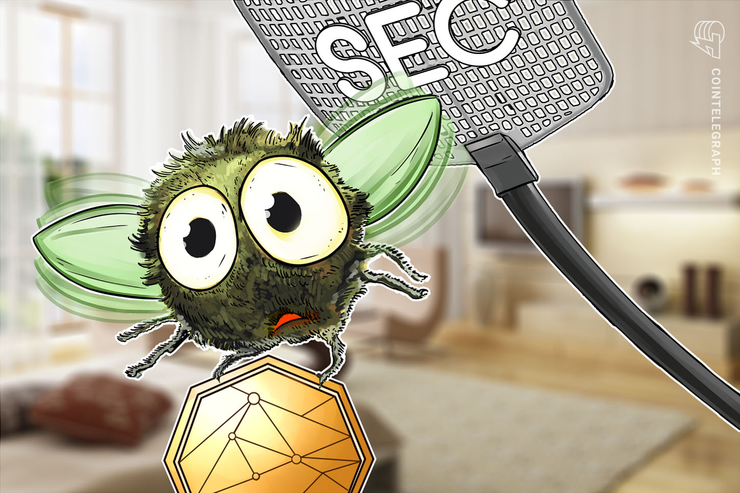The United States Securities and Exchange Commission (SEC) has announced that Telegram and the forthcoming GRM token constitute an unregistered digital token offering.
Per an Oct. 11 press release, the SEC has filed an emergency action and restraining order against Telegram and the Telegram Open Network (TON) in a complaint filed with federal district court in Manhattan.
The allegations
The full complaint alleges that Telegram and TON did not register their sale of GRM tokens, which the SEC considers securities. Because the Securities Act of 1933 requires that all securities be registered with the SEC, the agency considers the sale of GRM tokens “unlawful.”
According to Stephanie Avakian, the co-director of the SEC’s Division of Enforcement:
“Our emergency action today is intended to prevent Telegram from flooding the U.S. markets with digital tokens that we allege were unlawfully sold.”
The Background
In February 2018, Telegram submitted what is known as a “Form D” filing. Form D is used when a company sells a security without registering it with the SEC, using one of two exemptions. The first exemption, 506(b), prevents the company from generally advertising the security. It requires that the security only be sold to accredited investors and up to 35 non-accredited investors who the SEC considers “sophisticated”:
Each purchaser who is not an accredited investor either alone or with his purchaser representative(s) has such knowledge and experience in financial and business matters that he is capable of evaluating the merits and risks of the prospective investment
The other exemption, 506(c), is more straightforward: The security qualifies for the exemption only if it is exclusively sold to accredited investors. But the company is allowed to advertise and solicit for the security offering. Telegram’s Form D filing was under the 506(c) exemption.
Telegram’s Form D filing, showing the Rule 506(c) exemption
The Problem
Telegram’s GRM tokens would have initially been sold only to accredited investors in the initial token offering. However, because those token holders would then be able to resell the tokens, the SEC considered this a violation of the Rule 506(c) exemption that only accredited investors may invest in the security:
“Once Telegram delivers the Grams to the Initial Purchasers, they will be able to resell billions of Grams on the open market to the investing public. Telegram and/or its affiliates will facilitate these sales on digital-asset trading platforms. Once these resales occur, Telegram will have completed its unregistered offering with billions of Grams trading on multiple platforms to a dispersed group of investors.”
For that reason, the SEC filed a “preliminary injunction” to prevent the initial investors from being able to acquire Grams. The SEC did this because it believes this to be the only way to prevent the tokens from reaching unaccredited investors, rather than waiting for the exemption to be violated after the token sale — at which point it would become nearly impossible to retroactively retrieve the securities and put them solely in the hands of accredited investors.
“Once Grams reach the public markets, it will be virtually impossible to unwind the Offering, given that many purchasers’ identities will be shrouded in secrecy…. Accordingly, a temporary restraining order and preliminary injunction are necessary to prevent the imminent delivery of Grams to the Initial Purchasers (who are likely to promptly resell millions of them into the public markets).”
Other SEC actions
Earlier today, Oct. 11, CryptoX reported that the SEC, together with other U.S. regulatory agencies the Commodity Futures Trading Commission and the Financial Crimes Enforcement Network, issued a warning to crypto asset holders against violations of the Bank Secrecy Act, especially use of crypto in money laundering and terrorism financing.
Two weeks ago, CryptoX reported from an SEC hearing before the House Financial Services Committee, following which many questions remained as to who would be taking the lead on determining the status of cryptocurrencies, regulators or legislators. At the time, SEC Commissioner Robert J. Jackson Jr. told CryptoX:
“Is this going to be more of a legislative move or an SEC move? […] At the moment I don’t know.”
This article was updated at 9:24 AM, Saturday Oct. 12 with the background information about Telegram’s filing and more details about the SEC’s action.




